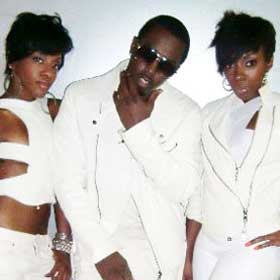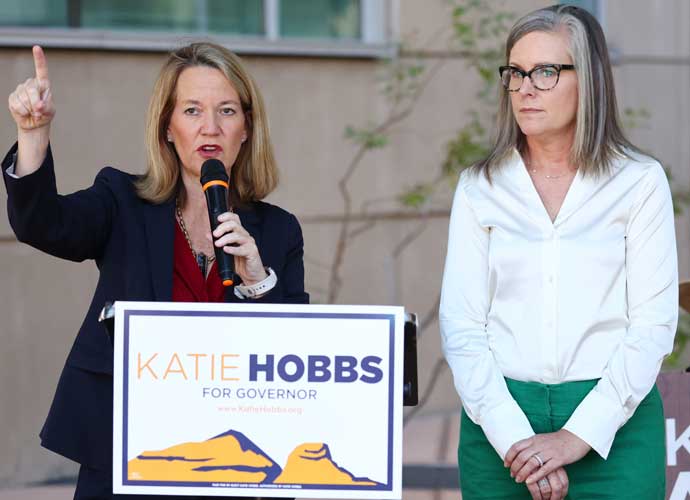Last Train To Paris By Diddy-Dirty Money

1.5/5
Sean Combs' first studio album in four years, Last Train to Paris, sees the debut of his new "band," Diddy-Dirty Money, which consists of Diddy–not "Puff Daddy," who produced a string of obnoxious pop-rap singles in the late '90s, including "Can't Nobody Hold Me Down," "Been Around the World," "It's All About the Benjamins" and the abominable "Come with Me"; nor "P. Diddy," who released what might turn out to be the worst rap single of the 2000s, "Bad Boy For Life"–as well as two unspectacular singers: Dawn Richard and Kalenna Harper. His latest musical jaunt finds Diddy mercifully outsourcing some of the rapping and singing duties to his bandmates and a slew of guests: a prudent choice as he was never all that much of a rapper to begin with. And, as he was never all that much of a producer either, production duties too have been outsourced to a group of both high profile and unknown beat-makers. Perhaps as a testament to his generally poor taste in music, Last Train to Paris is an uneven, at times embarrassing, at times downright puzzling hour of music. As this is the latest album from the founder of the Sean John clothing line, it makes sense that it would feature a handful of skits featuring equally respected icons of the fashion industry (or something): in the addition to the two already mentioned, former editor-at-large for Vogue, André Leon Talley, current editor-in-chief for Vogue, Anna Wintour, Marc Jacobs, Tommy Hilfiger and Zac Posen. He has claimed that this is a concept album about his alter-ego who has no name traveling from London to Paris in search of a lost love. In other words, it isn't a concept album.
After an overlong intro in which nothing happens comes the Danja-produced "Yeah Yeah You Would" featuring Grace Jones, a song that begins with the following announcement: "Ladies and gentlemen, I'm here to tell you that this is a brand new sound, this will change your life." After 30 seconds, a voice can be heard to say: "This is what you need." With these statements, Diddy has failed to adhere to the age old rule of storytelling: show, don't tell. Once the listener has been informed that they are about to hear what its creator deems a " brand new sound," that he or she "needs," that sound will appear to him or her to have been designed in a desperate attempt to seem cutting edge–therefore less like musical innovation and more like an absurd parody of "new"-sounding music; The Black Eyed Peas also have this problem–and that "need" will begin to feel a bit forced. Then again, Diddy has always been more of a musical pusher and plugger than an innovator.
"I Hate That You Love Me" sounds like it's based upon one of those pre-programmed beats you might find in FL Studio or Garage Band, and that a high profile producer-songwriter such as Rodney "Darkchild" Jerkins might use such a sample isn't all that surprising: artists like Darkchild and Danja do not receive $50,000 per beat simply because their work has any sort of intrinsically saleable quality, they receive such commissions because, as high profile artists, they often work on high profile albums–those guaranteed to sell a lot of copies–but usually don't receive future royalties from album sales. Also, not unlike Diddy–and not unlike his fashion icons–they're more "tastemakers" and "trendsetters" than craftsmen: most of their work is done by interns and assistants and their jobs largely consist of pointing at things and saying that they like them–in fact, you can even hear Diddy saying and "I like that" and "just like that" over records he hasn't produced. But all of this seems like less of an injustice when you consider that André Leon Talley, like all of Andy Warhol's former assistants, had to ghost-paint for him; but, as I mentioned before, as pop artists go, Diddy is a far cry from Andy Warhol, and no longer has any real credibility as a tastemaker.
One can identify melodic elements floating around in tracks like the aforementioned two, "Ass On the Floor" and "Looking for Love", so a two- or three-second clip of each might actually sound like a fully fledged pop song; but there's really nothing binding them together, so they sound just as arbitrary as the songs' super-cool, futuristic flourishes. Another strange choice: Diddy insists upon chanting "Dirty Money"–as he does in the beginning of "Someone to Love", which boasts one of the album's many abominable Diddy-raps–on virtually every track. Since the band Diddy-Dirty Money has only existed for about a year, the phrase "Dirty Money" doesn't evoke as strong thoughts or feelings as, say, "Bad Boy." As a result, the endless repetition seems to be a continuation of Diddy's desperate and ultimately abortive attempts to re-brand himself, which suggests that he never understood how Bad Boy came to be a recognizable brand to begin with, and may have lost some of his entrepreneurial savvy. Since virtually any track featuring Diddy in the role of emcee is guaranteed to fail, a great number of tracks do. Far from an honorable defeat, this is a confusing and confused effort, undoubtedly the worst album Combs has ever released or produced, possibly one of the worst ever: each track more "fashion forward" than the next–perhaps a little too forward as most of them fall right off of the runway.
RELATED ARTICLES
Get the most-revealing celebrity conversations with the uInterview podcast!







Leave a comment